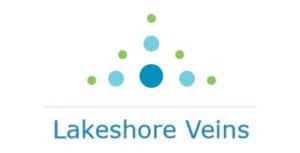5 Things Everyone Should Know About Vein Disease
If you suffer from leg and ankle swelling, discoloration, or poor wound healing, it could be a sign of vein disease. Here are the top 5 things everyone should know about venous disease.
1. Vein disease is a medical condition.
Vein disease continues to be one of the most under-diagnosed and under-treated medical conditions because many people, including some health professionals, see it as merely a cosmetic problem. We understand the harmful effects of vein disease, ranging from painful, heavy legs to itching, eczema, skin discoloration and sometimes painful ulcerations.
2. Vein disease does progress
If left untreated, venous disease will continue to worsen. It is unknown how fast the vein disease will progress. You can slow the progression with maintaining an ideal body weight, exercising and using compression stockings. If the vein problems progress to the point where there is pain, itching, heaviness or swelling that interferes with daily activities, treatment is needed. In addition, vein treatments are needed if skin discoloration or venous or arterial ulcers develop.
3. Vein disease is genetic.
Vein disease is primarily hereditary — accounting for about 80% of all incidences. If one parent has it, the likelihood of offspring having it as well is 40%. If both parents have vein disease, the likelihood climbs to 80%. Know your family medical history and take note when a relative begins experiencing classic signs of vein disease.
4. Vein disease is treatable.
Current state-of-the-art procedures for varicose veins include Sclerotherapy, Radiofrequency Ablation, Endovenous Laser Treatment (EVLT) and Ambulatory Phlebectomy. Vein procedures are minimally invasive and last under an hour, so you can return to work and/or daily activities the same day. Most vein treatments require little to no down time.
5. Vein disease may be covered by insurance.
Most insurance carriers are recognize vein disease for what it is: a serious medical condition. If you have symptoms related to your vein disease, most insurance carriers will cover your procedures. A trial of conservative care including the use of compression stockings, may be required.
If you suffer from vein disease, our venous experts offer a number of minimally invasive, in-office procedures, such as laser vein ablation, Radiofrequency Ablation, varicose vein removal, sclerotherapy and newer procedures such as vein glue or ultrasound guided chemical ablation. All treatments are performed in our comfortable and relaxing Mequon vein center.
Relief may only be a simple procedure away.
Call 262-241-3999 or Contact Us Online to set up a consultation today.



